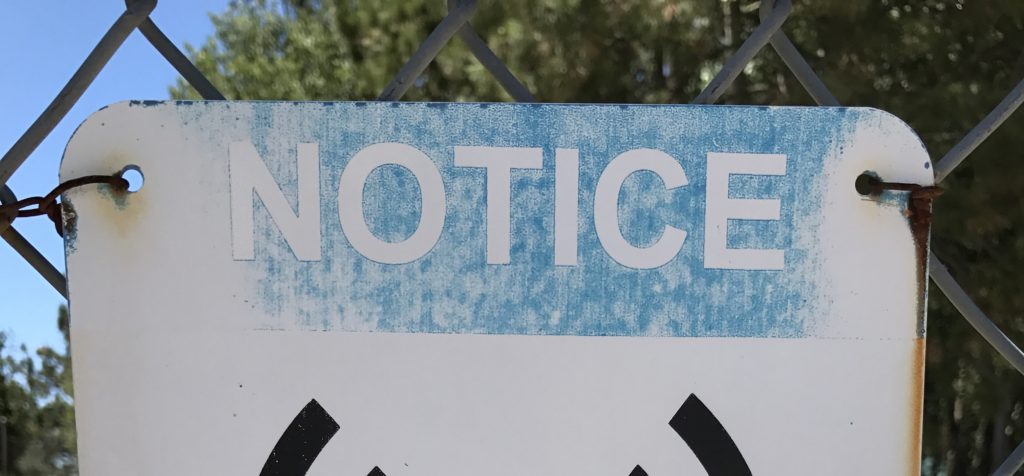Clements-Jeffrey v. City of Springfield, Ohio, 2011 WL 3678397 (S.D. Ohio August 22, 2011) [PDF copy of opinion]
Services that help track down stolen laptops and other lost mobile hardware are indispensable. Consider, for example, the year-long saga of Jeff Blakeman who used MobileMe to help recover his MacBook Pro that a TSA agent stole from checked luggage. Or how Joshua Kaufman used the remote recovery application Hidden to snap pics of the creepy dude who made off with his MacBook.
It is hard to not rejoice when one reads stories about laptop thieves being brought to justice. And we generally feel no pangs of conscience over whether the apprehended criminal had any privacy rights that were violated when he was being monitored with the software.
But what if the person being tracked did not steal the device, and did not know that it was stolen? Do we then care about whether the remote tracking process violated that person’s privacy? If so, how should that privacy right stack up against the theft victim’s right to get his or her property back?
A recent case from Ohio shows how the privacy right of the innocent user can constrain the rightful owner from using all means of what we might call “remote self help.” The court applied the Electronic Communications Privacy Act (“ECPA”) in a way that should cause users and purveyors of theft recovery services to reevaluate their methodologies.
Hot communications using hot property
The facts of the case were salacious and embarassing. Plaintiff bought a non-functioning laptop for $60 from one of her students (she was a substitute teacher at an “alternative” high school). After she got the computer working, she used it to have sexually explicit communications with her out-of-state boyfriend — they even got naked in front of their webcams with one another.
As it turns out, however, the student who sold plaintiff the laptop had stolen it. The teacher claimed she did not know it was purloined. The original, rightful owner of the laptop had installed Absolute Software’s LoJack for Laptops on the device. After it was stolen, and after it had made its way into plaintiff’s hands, Absolute began its work of locating the machine and gathering information about its whereabouts and its user.
In this process, one of Absolute’s employees obtained real-time access to what was happening on the stolen computer. He was able to collect keystrokes of the sexually explicit communications, and gather three screen shots of plaintiff and her boyfriend, both naked, fooling around on the webcam.
Absolute turned the information — including the X-rated screen shots — over to the police. Plaintiff was arrested and handcuffed. The criminal court dismissed the case against her.
But plaintiff (and her boyfriend) sued. They brought several claims against the police for violation of their constitutional rights, and claims against Absolute for, among other things, violation of the ECPA. Absolute moved for summary judgment on the ECPA claim but the court denied the motion. The court found that Absolute could not show, as a matter of law, that it should not be liable for the interception of the explicit communications.
Legitimate privacy expectation, even on a stolen computer
Subject to certain exceptions, the ECPA prohibits one from surreptitiously intercepting or disclosing the contents of any wire, oral or electronic communications of another. The defendants first argued that plaintiff could not put forward a valid ECPA claim because she did not have a legitimate expectation of privacy in these communications.
The court rejected this argument, finding that plaintiff’s belief as to her privacy was reasonable both subjectively and objectively. She felt safe enough to engage in the explicit communications (subjective belief), and she demonstrated that she had no reason to suspect the laptop was stolen (objective belief). Had she known or had reason to know it was stolen, her claim of privacy would have been subordinated to the possessory interest of the owner. (As an aside, there was some interesting evidentiary wrangling that went on a few weeks ago about defendants’ expert witnesses opining on internet privacy. Read more about that at Bow Tie Law.)
Public policy did not come to the rescue
Absolute next argued that certain exceptions to liability for violation of the ECPA should protect it. The court rejected each of these arguments. It found that the exception for those acting “under color of law” to track down “computer trespassers” did not apply, because Absolute was a private entity, not one acting under color of law. The court also rejected Absolute’s argument that it could divulge the intercepted contents as a provider of an electronic communications service. The court found that Absolute did not provide an “electronic communications service to the public” as defined by the ECPA.
So Absolute was left with one final argument, namely, that public policy should shield it from liability for the unauthorized interception and disclosure of the keystrokes and screen shots. Absolute argued that the legal owner of the stolen laptop should be able to take steps to locate and recover that property, and that the rights of the property owner must trump those of a thief.
The court declined to implement such a per se rule, noting that:
It is one thing to cause a stolen computer to report its IP address or its geographical location in an effort to track it down. It is something entirely different to violate federal wiretapping laws by intercepting the electronic communications of the person using the stolen laptop.
In so many words, the court was saying that Absolute went too far in collecting the contents of the communications being made on the stolen computer. Had the information collection stopped at IP addresses and other non-content information, the remote tracking efforts may not have run afoul of the ECPA.





